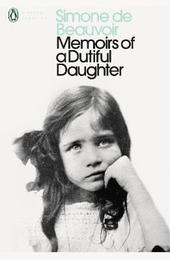
|
Memoirs of a Dutiful Daughter
Paperback / softback
Main Details
Description
In her memoirs, Simone de Beavoir created a remarkable portrait of a twentieth-century woman's struggle for independence A superb autobiography by one of the great literary figures of the twentieth century, Memoirs of a Dutiful Daughter offers an intimate picture of growing up in a bourgeois French family, rebelling as an adolescent against the conventional expectations of her class, and striking out on her own with an intellectual and existential ambition exceedingly rare in a young woman in the 1920s. Simone de Beavoir describes her early life, from her birth in Paris in 1908 to her student days at the Sorbonne, where she met Jean-Paul sartre - 'the dream-companion I had longed for since I was fifteen'.
Author Biography
Simone de Beauvoir (1908-86) French philosopher, novelist, and essayist, the lifelong companion of Jean-Paul Sartre. Beauvoir's first book, L'Invitee, was published in 1943. In 1945 Beauvoir published Le Sang des autres, a novel dealing with the question of political involvement. Beauvoir's breakthrough work was semiautobiographical Les Mandarins (1954), which won the Prix Concourt. Roman Catholic authorities banned it and Beauvoir's feminist classic The Second Sex (1949), in which Beauvoir argued that "one is not born a woman; one becomes one". In 1958 Beauvoir published Memoires d'une jeune fille rangee, the first of four volume memoirs. She described her happy childhood, intellectual development and of course Sartre. It was followed by La Force de l' ge (1960), La Force des choses (1963), and Tout compte fait (1972),
Reviews"[Beauvoir's] graciously written memoirs carry distinct appeal in recording the emotional and intellectual birth pangs of a fascinating woman."--Time "It is a book that will leave no one indifferent, and no one affected in quite the same way."--New York Times "This is perhaps the best piece of writing Mlle. de Beauvoir has yet done; the translator does it justice."--Saturday Review [Beauvoir s] graciously written memoirs carry distinct appeal in recording the emotional and intellectual birth pangs of a fascinating woman. --Time It is a book that will leave no one indifferent, and no one affected in quite the same way. --New York Times This is perhaps the best piece of writing Mlle. de Beauvoir has yet done; the translator does it justice. --Saturday Review "The graciously written memoirs carry distinct appeal in recording the emotional and intellectual birth pangs of a fascinating woman."-- "Time""This excellent autobiography...of the bending of the twig is, in certain respects, more sympathetic than the later leafings of the tree; but the line between the child Simone and the woman of "The Second Sex" and "The Mandarins" is direct and clear."-- Joan Brace, "Chicago Sunday Times""It is a book that will leave no one indifferent, and no one affected in quite the same way."-- Elizabeth Janeway, "New York Times""This is perhaps the best piece of writing Mlle. de Beauvoir has yet done; the translator does it justice."-- Germaine Bref, "Saturday Review"
|